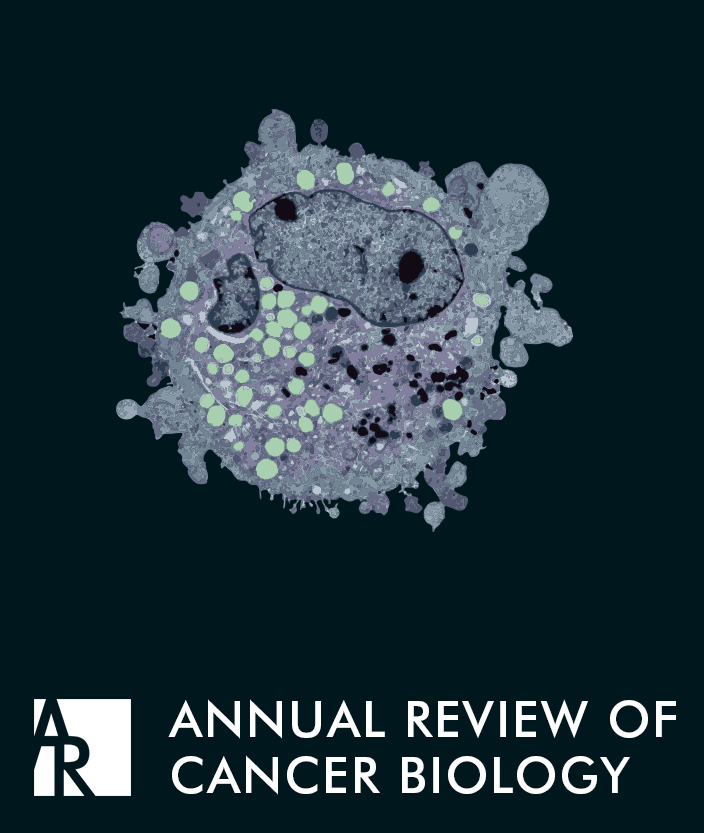Aiding and Abetting: How the Tumor Microenvironment Protects Cancer from Chemotherapy
IF 4.7
2区 医学
Q1 ONCOLOGY
Annual Review of Cancer Biology-Series
Pub Date : 2019-03-04
DOI:10.1146/ANNUREV-CANCERBIO-030518-055524
引用次数: 10
Abstract
Disease recurrence following cancer therapy remains an intractable clinical problem and represents a major impediment to reducing the mortality attributable to malignant tumors. While research has traditionally focused on the cell-intrinsic mechanisms and mutations that render tumors refractory to both classical chemotherapeutics and targeted therapies, recent studies have begun to uncover myriad roles for the tumor microenvironment (TME) in modulating therapeutic efficacy. This work suggests that drug resistance is as much ecological as it is evolutionary. Specifically, cancers resident in organs throughout the body do not develop in isolation. Instead, tumor cells arise in the context of nonmalignant cellular components of a tissue. While the roles of these cell-extrinsic factors in cancer initiation and progression are well established, our understanding of the TME's influence on therapeutic outcome is in its infancy. Here, we focus on mechanisms by which neoplastic cells co-opt preexisting or treatment-induced signaling networks to survive chemotherapy.辅助和教唆:肿瘤微环境如何保护癌症免受化疗
癌症治疗后的疾病复发仍然是一个棘手的临床问题,是降低恶性肿瘤死亡率的主要障碍。传统上,研究主要集中在细胞内在机制和突变上,这些机制和突变使肿瘤对经典化疗和靶向治疗都难以耐受,而最近的研究已经开始揭示肿瘤微环境(TME)在调节治疗效果方面的无数作用。这项研究表明,抗药性既是生态的,也是进化的。具体来说,居住在全身各器官的癌症不会孤立地发展。相反,肿瘤细胞出现在组织的非恶性细胞成分的背景下。虽然这些细胞外源性因素在癌症发生和发展中的作用已经确立,但我们对TME对治疗结果的影响的理解还处于起步阶段。在这里,我们聚焦于肿瘤细胞如何利用预先存在的或治疗诱导的信号网络来生存化疗的机制。
本文章由计算机程序翻译,如有差异,请以英文原文为准。
求助全文
约1分钟内获得全文
求助全文
来源期刊

Annual Review of Cancer Biology-Series
Medicine-Oncology
CiteScore
14.50
自引率
1.30%
发文量
13
期刊介绍:
The Annual Review of Cancer Biology offers comprehensive reviews on various topics within cancer research, covering pivotal and emerging areas in the field. As our understanding of cancer's fundamental mechanisms deepens and more findings transition into targeted clinical treatments, the journal is structured around three main themes: Cancer Cell Biology, Tumorigenesis and Cancer Progression, and Translational Cancer Science. The current volume of this journal has transitioned from gated to open access through Annual Reviews' Subscribe to Open program, ensuring all articles are published under a CC BY license.
 求助内容:
求助内容: 应助结果提醒方式:
应助结果提醒方式:


